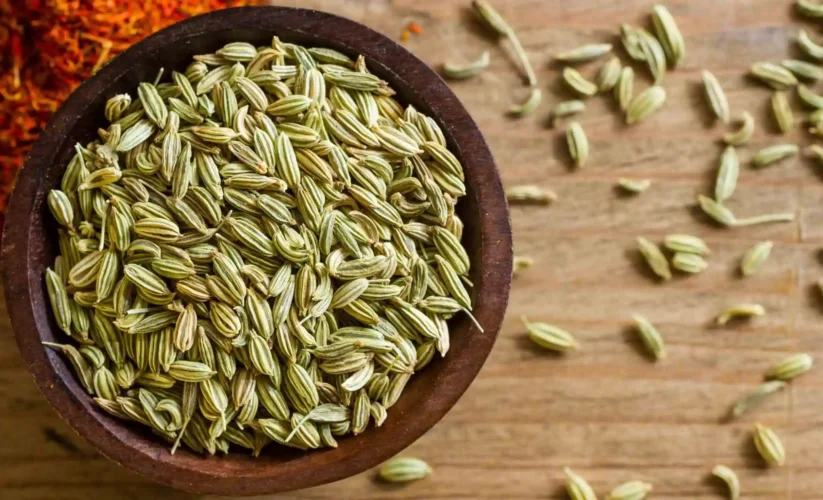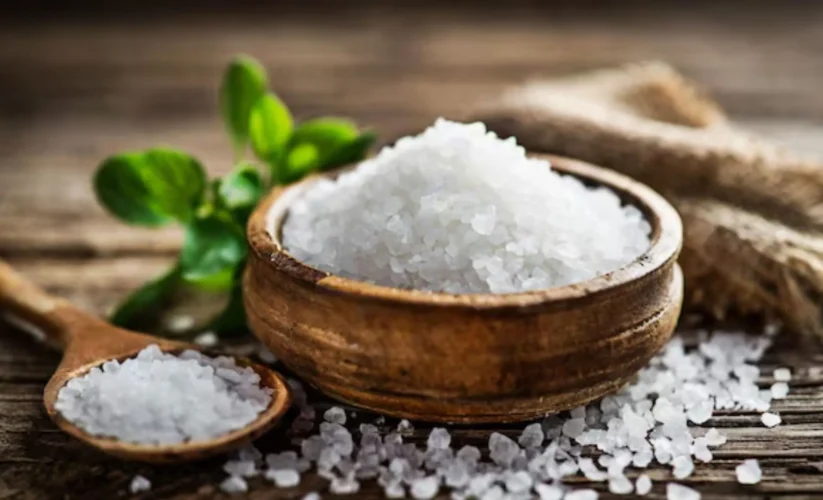
The Benefits of Fennel Seeds: A Powerful Spice with Countless Health Benefits
In the world of spices and herbs, fennel seeds hold a special place. These tiny seeds, with their licorice-like flavor, pack a powerful punch when it comes to health benefits. From aiding digestion to providing antioxidant properties, fennel seeds have been used for centuries in various cuisines and traditional medicine practices. Let’s explore the many benefits of incorporating fennel seeds into your daily routine.
Fennel Seeds: What Are They?
Fennel seeds are the dried seeds of the fennel plant, which is a flowering herb that belongs to the carrot family. These seeds have a slightly sweet and nutty flavor, with a hint of anise-like taste. They are commonly used in cooking, both as whole seeds and ground into a powder. Fennel seed are widely available at grocery stores and health food stores, making them an easy and affordable addition to any kitchen pantry.
The Health Benefits of Fennel Seed
- Digestive Aid
Fennel seeds are well-known for their ability to aid in digestion. They contain anethole, a compound that helps relax the digestive tract muscles and reduce inflammation. This may lessen gas, indigestion, and bloating symptoms . Simply chewing on a few fennel seeds after a meal can help promote healthy digestion.
- Antioxidant Properties
Fennel seeds are rich in antioxidants, such as vitamin C and flavonoids, which help protect cells from damage caused by free radicals. This may lessen the chance of developing long-term conditions including cancer and heart disease. Including fennel seeds in your diet can help boost your overall antioxidant intake and support your body’s natural defenses.
- Anti-Inflammatory Effects
Numerous chronic illnesses, such as diabetes, heart disease, and arthritis, are mostly caused by inflammation. The anti-inflammatory properties of fennel seeds can help reduce inflammation in the body and promote overall health. Incorporating fennel seeds into your meals or enjoying fennel seed tea can help combat inflammation and support a healthy immune system.
- Weight Management
Fennel seeds can also aid in weight management. They are low in calories but high in fiber, which can help promote feelings of fullness and reduce overall calorie intake. Additionally, fennel seed can help regulate blood sugar levels, which is important for maintaining a healthy weight. Including fennel seeds in your diet can help support your weight loss goals in a natural and sustainable way.
How to Include Fennel Seed in Your Meal Plan
There are countless ways to enjoy the benefits of fennel seeds in your daily diet. Here are a few ideas to get you started:
- Add a teaspoon of fennel seed to your morning smoothie for a hint of sweetness and crunch.
- Sprinkle roasted fennel seeds over a salad for a tasty and nutritious garnish.
- Brew a cup of fennel seed tea by steeping crushed fennel seed in hot water for a soothing and digestive-friendly drink.
- Use ground fennel seeds as a flavorful seasoning for grilled vegetables or roasted meats.
In Conclusion
Fennel seeds are a versatile and powerful spice that can offer a wide range of health benefits. From aiding digestion to promoting weight management, these tiny seeds pack a big punch when it comes to overall wellness. By incorporating fennel seed into your daily routine, you can support your health and well-being in a delicious and natural way . Discover the many health benefits of fennel seed and how to incorporate them into your diet for improved digestion, antioxidant support, and weight management.
Remember, a sprinkle of fennel seed a day may keep the doctor away!
FAQ
Q. What is fennel seed good for?
Fennel seed are not just a flavorful spice used in cooking, but they also offer several health benefits. They are known for their ability to aid digestion and relieve bloating and gas. Fennel seed contain anethole, a compound that has been shown to have anti-inflammatory properties and may help reduce symptoms of arthritis and other inflammatory conditions. Additionally, fennel seeds are rich in antioxidants, which can help protect the body from damage caused by free radicals. Some studies suggest that fennel seeds may also help with weight loss by increasing metabolism and suppressing appetite. Overall, incorporating fennel seed into your diet can be a simple way to promote better health and well-being.
Q. What is the Indian name for fennel
The Indian name for fennel is “saunf.” Fennel is a popular herb with a licorice-like flavor commonly used in Indian cuisine for its aromatic and digestive properties. It is often added to curries, spice blends, and teas for its unique taste and health benefits. In Indian households, fennel seed are also chewed after meals to aid in digestion and freshen the breath. Additionally, fennel is believed to have medicinal properties and is used in traditional Ayurvedic medicine for various ailments. Overall, saunf (fennel) is a versatile ingredient that adds a distinctive flavor and aroma to Indian dishes while offering potential health benefits.
Q. Is fennel safe to take everyday?
The Indian name for fennel is “saunf.” Fennel is a popular herb with a licorice-like flavor commonly used in Indian cuisine for its aromatic and digestive properties. It is often added to curries, spice blends, and teas for its unique taste and health benefits. In Indian households, fennel seeds are also chewed after meals to aid in digestion and freshen the breath. Additionally, fennel is believed to have medicinal properties and is used in traditional Ayurvedic medicine for various ailments. Overall, saunf (fennel) is a versatile ingredient that adds a distinctive flavor and aroma to Indian dishes while offering potential health benefits.
Q. Who should not eat fennel seed?
Fennel seeds are generally safe for most people when consumed in moderate amounts as a spice or flavoring agent. However, there are certain individuals who should avoid fennel seeds. Fennel seed can trigger allergic reactions in people who are allergic to plants including celery, carrots, and mugwort. Pregnant women are advised to avoid consuming fennel seeds in large amounts as it may stimulate the uterus and lead to complications. Individuals with bleeding disorders should also be cautious when consuming fennel seeds as they may increase the risk of bleeding. It is always recommended to consult with a healthcare provider before including fennel seeds in your diet, especially if you have any underlying health conditions or concerns.





